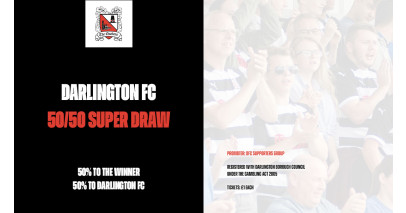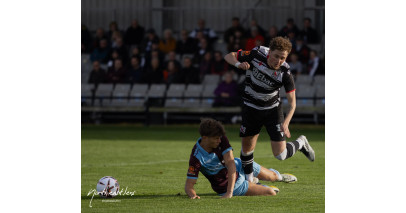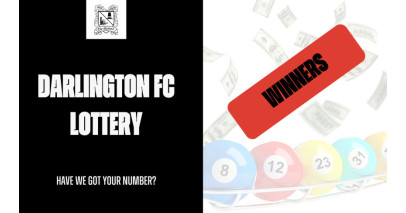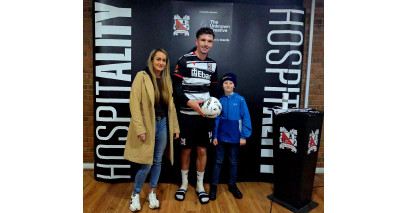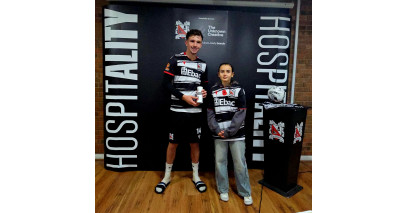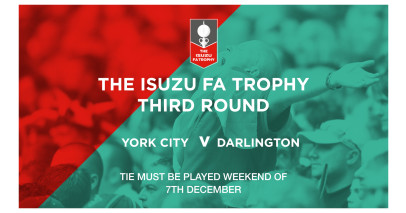They served Quakers well -- Tony Moor
By Ray Simpson
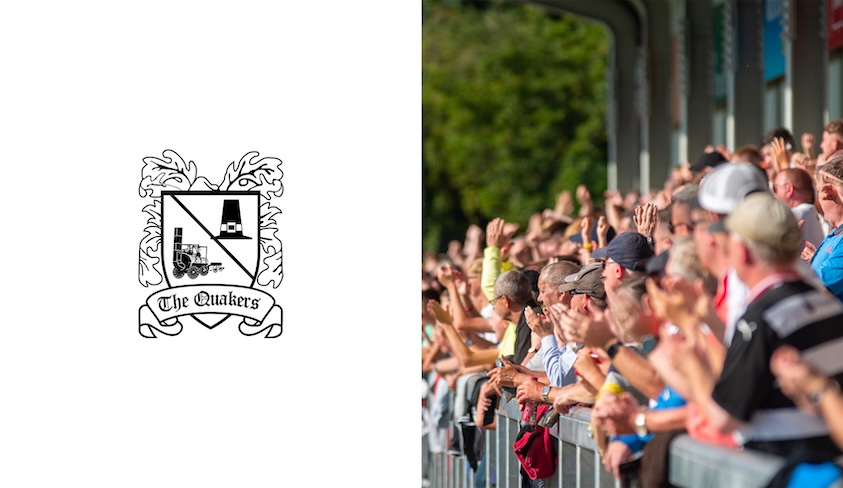
[caption id="attachment_22592" align="alignnone" width="225"] Tony Moor in action[/caption]Tony Moor...
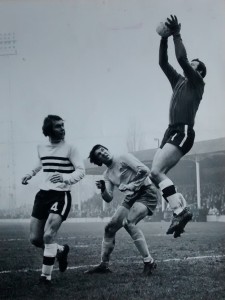 Tony Moor in action[/caption]
Tony Moor in action[/caption]Tony Moor was our keeper during Quakers promotion season of 1965-66.
Here, with the help of Farewell to Feethams, are Tony's memories.
Tony Moor was Darlington keeper for six years, during which time he helped Quakers to their first promotion in nearly forty years, when they finished second in season 1965-66.
Tony played part time for Darlington, after starting his career at York. “I was full time at York for three years, but I thought that there wasn’t a lot of future in it because of the money, and left.
“So I opened up a sports business in my home town, Scarborough. Lol Morgan, was looking for a keeper, but he wanted me to go full time again.
“I refused, and I heard nothing else for a while. He eventually came back to me, and said he would sign me, if I would train a couple of mornings per week. I felt I could manage that, so I signed on.”
In fact, Moor cost Quakers £100, after the manager Lol and chief scout Jack Watson watched him playing for York Reserves at South Shields.
Moor stepped straight into a promotion chasing side, and was an ever-present on their way to glory.
“We had a very good team that season. One of our best performances was a 4-0 win at Torquay. They were top of the table, and we were just below them.
“They had some good pressure, but every time we attacked them, we seemed to score. We played some good football that night. We had another good performance at Colchester near the end of the season. They were near the top, like us, and we won 1-0, Brian Keeble scored.
“The last game of that season was against Torquay. We drew 0-0 with them to win promotion, but they scored a blistering goal from about 35 yards out which I didn’t see at all. It was disallowed for some reason, fortunately.”
Unfortunately, manager Lol Morgan quit that summer for Norwich City. “Lol was very good at man-management. He knew how to get the best out of his players. He worked a lot with the ball, and liked to use different tactics.
“When Jimmy Greenhalgh took over, he had us running a lot, and that year, we seemed to get a lot of injuries which meant we lost our rhythm.”
Jimmy made his mark early on. “Usually after away games with Lol, we would go into a restaurant and order from the a la carte menu.
“We did this after an away game at Swindon, and after we got back on the bus, Jimmy told us to get off again. He closed the bus door, and shouted; “This isn’t blooming Barcelona. When you go into a restaurant again, order from the menu, and not a la carte. “ By the end of that season, we weren’t going into restaurants – we were using transport cafes!”
Quakers came straight back down from the third, but in season 1967-68, they reached the last sixteen of the Football League Cup.
“We had two very good wins against Second Division clubs Portsmouth and Millwall,.
“We played Derby at the Baseball Ground on a horrible pitch in the fifth round. We played quite well in the first half, and Bobby Cummings gave us the lead, and at half time we fancied our chances.
“But in the second half, I was beaten by two deflections. I went one way, and the ball went the other – nothing I could do about them “
Ray Yeoman took over from Jimmy Greenhalgh in March 1968. “We went to Port Vale for an away game. Before the game, Ray laid into me, and told me that I was too soft when I was coming out for the ball. He reckoned I should hit players instead.
“So when the first ball came into the box, I charged out with my feet flying, and I knocked a couple of people over. It was only when I turned round, that I saw John Peverell and Brian Keeble, both my full backs, flat out. I didn’t do it again, and Ray never mentioned it either.”
The 1968-69 saw Quakers mount another promotion challenge.
They started the season with an unbeaten run of fourteen matches, Exeter City ending the sequence with a 2-1 win at Feethams at the end of October.
“I had ten clean sheets in that run, seven of them in a row. We played at Doncaster on a Friday night in October, and there were 22,000 people in the ground. When we walked on to the pitch, John Peverell said to me “We’re all right for a crowd bonus tonight”. We won 1-0 with a goal from Harry Kirk.”
Quakers had a mini slump, but they were back in the running for promotion thanks to a run of four wins in six games, but some bad results meant they had to beat Bradford City in the last game of the season to win the last promotion place.
“We scored early in the game, but then the barrier collapsed behind my goal, although I didn’t think there was any crowd trouble and we had to go off the field.
“Bradford won the game 3-1. They got one goal at a corner, when one of their players stood in front of me, and as the ball was hit towards him, stuck his backside into me and I could only push the ball into my own net.”
Tony decided he was going to retire when he suffered a kidney injury against Everton in the second round of the League Cup in season 1969-70.
“I ended up in hospital after that game. Everton were league champions at the time, and they fielded their strongest team at Feethams We held them to a goalless draw in the first half, and in the second half, I came out for the ball, and Joe Royle came in sideways, and kneed me in the kidneys.
“I had treatment for a few minutes, and stayed on the field (There were no substitute keepers in those days). Five minutes later, Alan Ball scored the only goal of the game.
“After the game finished, I rushed straight to hospital, and the doctors told me that I had internal bleeding. In fact, they were frightened that my kidneys might rupture. So it was at that point when I decided to retire.”
Ironically, on the day we interviewed Tony, Joe Royle was sacked as manager of Premiership club Manchester City.
It took Tony another eighteen months to finally hang up his boots, at the end of season 1970-71, although he came back and played twice more in an emergency the following season.



